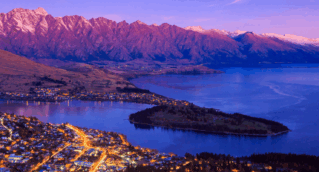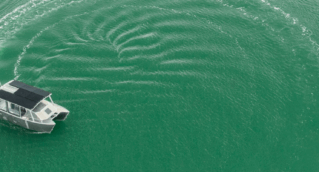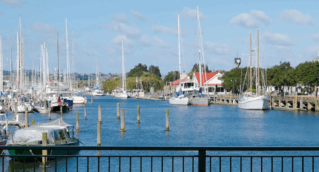23 June 2025
McKay appointed to deliver Samoa’s first low-carbon maritime transport solution

McKay has been appointed as the head supplier to deliver the E-Alia project as part of the Climate Action Pathways for Island Transport (CAP-IT) Project in Samoa.
The CAP-IT project is part of a $37 million (USD) Japanese-funded Green Transformation initiative implemented by United Nations Development Programme that will also support green transportation projects in Papua New Guinea, Timor-Leste, and Vanuatu. $15.3 million (USD) of these funds have been allocated to Samoa.
McKay will design and manufacture five solar/battery-propelled electric catamaran vessels to transport passengers between five villages on the small islands of Manono and Namua.
Constructed from aluminium, the 10-meter electric catamarans will be powered by two electric outboard engines, with the capacity to carry up to 12 passengers at a speed of 6-8 knots.
Scheduled for completion in three phases, phase one is currently underway in Whangārei, New Zealand, where the first vessel is being constructed with project partners Circa Marine Ltd and LOMOcean Naval architecture. Vessels 2-5 will be constructed in Samoa with local engagement alongside Henry Silva Shipyard Ltd and will see the deployment of NZ staff to oversee and assist local providers on the completion of the vessels.
Ben Haselden, Manager National Marine at McKay, emphasized the importance of engaging Samoa’s local workforce in the construction of the E-Alia vessels, noting the significant economic and educational benefits.
“This project was never just about delivering electric boats—it was about empowering local communities and people. By involving Samoan tradespeople directly in the build process, we will help inject skills and income into the local economy, while creating a platform for hands-on learning in advanced marine technology.” He shared.
Upon its completion, the low-emission vessels will be Samoa’s first low-carbon maritime transport to join its existing fleet of vessels.
With no previous use or experience of electric vessels before this project, the final stage of the project will include a comprehensive induction and training component for vessel operators, ensuring safe operations.
Haselden highlighted that mentoring local workers in electric propulsion systems not only ensures long-term sustainability of the vessels but also builds a foundation for Samoa’s future in clean marine transport.
Mark McGinley, Executive General Manager – Technology at McKay, noted that “McKay is proud of how this project builds on our extensive record of innovation, with a proven history of leading low-carbon maritime transportation initiatives.”
In 2020, McKay was responsible for the installation and commissioning of the shoreside infrastructure and charging system work for the world’s first fully electric, full-sized ship-handling tugboat, named “Sparky,” which is operated by Ports of Auckland.
In 2022, the company launched the Ika Rere, the first fully electric passenger ferry in the Southern Hemisphere.
With Samoa’s first electric vessels expected to launch in November 2025, they represent a significant step towards supporting Samoa’s Decarbonisation Strategy for its Transport Sector, while supporting advancements in clean marine technology across the Pacific Islands.



